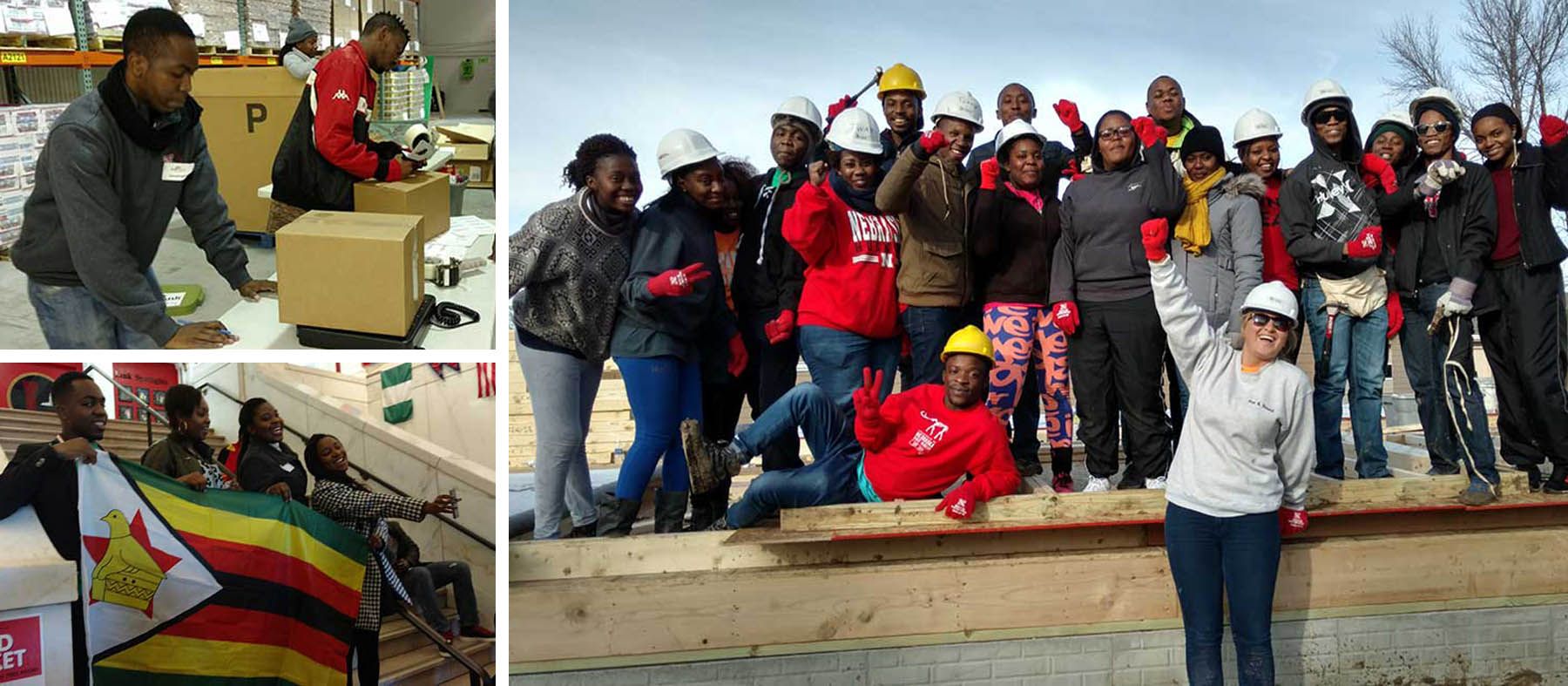Thursday, March 10, 2016 A Shared Learning Experience with Africa

When we hear about service learning opportunities, the image of college students from Africa visiting the U.S. to provide service and assistance may seem unusual – but it the just one of unique opportunities presented by the Study of the U.S. Institute on Civic Engagement for Student Leaders program.
Sponsored by the U.S. State Department and hosted by Student Affairs and the Communication Studies and Political Science departments, the program fondly called SUSI brought 20 student leaders from Angola, Mozambique, Zimbabwe, South Africa and Botswana to the UNL campus and Lincoln community in January.
The primary goal of the program is to provide education through immersion activities related to government, history, civil rights and activism. Over the course of four weeks, students:
- participated in courses led by university faculty;
- witnessed government in action at the Nebraska state capitol building;
- connected with UNL new student orientation leaders at the Global Leadership Retreat;
- bonded over discussions of music and pop-culture with English as a Second Language students at Lincoln High School;
- visited families in the Lincoln community for an overnight stay in an American home;
- helped build a home with Habitat for Humanity;
- volunteered at a local food bank and at the Malone Community Center.
“We find that SUSI students are intrigued by their service-learning experience. We begin by comparing and contrasting their definition of service with traditional U.S. models and then help them craft a personal service philosophy,” said Linda Major, Assistant to the Vice Chancellor.
She explained that through service-learning students make meaning of their service experience within the context of their life experience, course content and personal and professional goals.
A peer education component of the program offers UNL students the opportunity to serve as ambassadors and hosts to the visiting students.
“With the SUSI kids you can sit down and have a conversation about pretty much anything dealing with international politics or anything global. They know more about our system of government than we do,” said Griffen Farrar, a senior political science and history major.
Likewise, the Lincoln community benefits from the SUSI students’ arrival. The visiting students volunteer around town and community members enjoy the opportunity to host students for an overnight stay in an American home.
“Our family offered to welcome students from another country so that they could learn more about the ‘American’ lifestyle, and so we could learn about theirs as well. Barack and Kennedy were perfect gentlemen and reminded us of U.S. college students with their smartphone use, sleeping in and hearty eating habits. We enjoyed every minute of their visit,” said Katie Cervantes who hosted two of the visiting students. “They were so patient with our children (ages 4 and 6) who had learned in advance about Botswana – studying their economy, animals, cities on a map, etc.”
Sociology professor Dr. Regina Werum hosted SUSI students in her home for the past two years. She commented that the students’ development from their time in the U.S. is apparent.
“What's been fascinating to see is the change in these students from the first time you meet them when they're fresh off the plane, and then four weeks later. That personal growth that you see in them – the level of confidence, the willingness to express criticism, show critical views, and the ability to do so constructively. They are used to very different cultural norms about being able to agree to disagree. They are trying to be polite the first time they meet you. And then the second time, they will tell you ‘and here's what we've noticed about the U.S.…’"
Werum understands the value these students bring to teaching their peers at UNL about diversity and underrepresented populations.
“I can say it ten times, but when somebody they consider a peer can give one example, it goes much further,” said Werum.
“The knowledge gained from coursework is as important as interactions with people of diverse backgrounds because those exchanges shape our world view and generate empathy, understanding, and a longing for cooperation, which the world needs more of today,” adds Cervantes.
Following their time in Lincoln, the students continued their educational journey by touring civil rights exhibits in Alabama and visiting Washington, D.C. to further explore civic engagement.
This is the third year UNL has participated in the program.